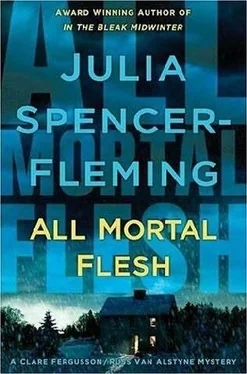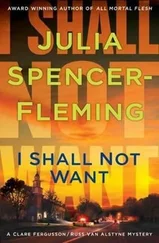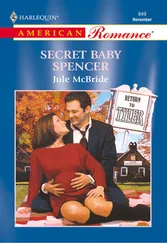She soothed him a little more, assured him that no, there was no reason they should have a special meeting to discuss the problem, and got him off the line just as her doorbell rang with the first three members of the bridge group. She probably wouldn’t have thought much more of it if, during a lull after bidding out her hand, she hadn’t overheard Yvonne Story telling the rest of the north table that Reverend Clare Fergusson had demanded a resolution to her affair with Chief Russ Van Alstyne, which is why he had shot his wife after she refused to divorce him.
“Yvonne Story! Where on earth did you hear such nonsense?”
The retired librarian had a homemade-dumpling face, imperfectly round and pastry-pale, and a lifelong, passionate love affair with the sound of her own voice. “Oh! Lacey! It slipped my mind, but she’s your pastor, isn’t she? I’m so sorry. Isn’t it awful the things that men and women of God get up to these days? That’s why I stopped going to church years ago. I follow this wonderful minister on the television, Dr. Peter Panagore. He’s a lovely, lovely man. And it’s so convenient, not having to get my stockings on of a Sunday morning.”
“Yvonne,” Mrs. Marshall cut in, “there’s not an ounce of truth to that story you were telling about Reverend Fergusson and Chief Van Alstyne.”
“Oh, but there is! I volunteer at the Infirmary, you know, reading to the old folks and keeping them company, and the director, Paul Foubert-you know Paul, don’t you? He’s a lovely, lovely man, and so well spoken, although, you know, most of that sort of men are-”
“Yvonne. Are you telling me the director of the Infirmary told you Chief Van Alstyne shot his wife? I don’t believe it.”
“Well, I did happen to overhear him saying that Mrs. Van Alstyne-the younger Mrs. Van Alstyne, not the older-had been killed, and that his, you know, special friend, the medical examiner, was on the case because it was foul play.” She let the last words echo dramatically, a refinement Mrs. Marshall had thought her incapable of. Most of Yvonne Story’s conversational efforts went into quantity, not quality. The women at her table, who had been looking either annoyed or shell-shocked at the flow of words, were perking up at the interesting revelations.
“I understand the chief’s wife was found dead. That doesn’t mean that he had anything to do with it.”
“Geraldine Bain at the post office told me right before I came over here. She said the chief’s wife kicked him out of their house because he was having an affair.”
“That doesn’t mean-” Mrs. Marshall stopped herself from defending Russ Van Alstyne. Wind to fan the fire. “Geraldine Bain is one of the worst gossips in Millers Kill.”
“But she’s cousin to the Dandridge Bains, who live in Cossayuharie. Their daughter is married to a police officer.”
“It’s always the husband in cases like this,” Yvonne’s West hand said authoritatively.
South hand nodded. “I only met Linda Van Alstyne once or twice, but she seemed like a delightful woman. She hired a lot of local women for her business, you know. Women who needed the work.”
“It’ll be a shame if nothing ever comes of it.” Mrs. Marshall’s own North hand spoke up, loud enough for everyone to hear. “I figure the police department will take care of their own. Mark my words, there’ll be a cover-up.”
“There’s nothing to cover up,” Mrs. Marshall protested, but she was drowned out in a sea of voices, as everyone began speculating how and why the chief of police had killed his wife.
She had been wrong. Someone had to speak to Reverend Fergusson about this. The sooner, the better.
The rector of St. Alban’s had spent the rest of the afternoon avoiding her new deacon and her personal miseries. Wrung out from the morning’s revelations and jittery after spotting Russ’s deputy chief and one of his officers eyeing her as she left the station parking lot, she had- sneaked was such an ugly word; she preferred entered with stealth -at any rate, she made it into the church without being seen. A quick reconnoiter outside the hall confirmed that neither Lois nor Elizabeth de Groot was around. Clare dashed into her office and grabbed her appointment book and while-you-were-out memos. From the sacristy, she took her traveling kit: a plain leather box containing wafers, wine, clean linen, and the silver pieces used in celebrating the Eucharist. God-in-a-box, as she sometimes thought of it.
Suitably prepped, she set out to lose herself in the halls of the Washington County Hospital and the Infirmary. Father Lawrence had covered her duties as celebrant during the time she was off, but the hospital and old-age-home visits were a week overdue. In her car, she put in a quick call to the secretary, which she knew would be answered by the parish office’s machine. “Lois, it’s Clare. I’m going to be out for the afternoon”-she kept it vague, in case de Groot got the idea to tag along after her-“but you can reach me on my cell if it’s an emergency. Please apologize to Deacon de Groot, and you can ask her to… to… help collate this month’s newsletter.” Then she felt guilty and added, “Show her the January and February schedules and see if she can sit in on some of the committee meetings. We want everyone to get the chance to know her.”
Over the next few hours, visiting the sick and elderly in her care, she managed to forget, from time to time, the bishop’s judgment hanging over her, her new watchdog-deacon, and her unease about being seen in Russ’s company today of all days. It was impossible to think of herself when confronted with others’ overwhelming needs. Gillian Gordounston, who had just moved from Albany to Millers Kill with her husband because she thought it would be a good place to raise children, only to wind up on bed rest with triplets, not knowing a soul except her doctor and the rector of the church they had attended exactly two times. Twelve-year-old Joseph van Eyk, whose kidneys had failed last year, hospitalized the third time for a post-transplant infection. Liz Garrettson’s elderly mother, who went in and out of the emergency room while her daughter and son-in-law remained locked in battle over whether she should be moved to their house or institutionalized. Today she was weepy and confused, convinced that men were breaking into her home to kill her cats. Mrs. Oliver, her wit still Dorothy Parker-sharp at ninety, trapped in a body that could no longer stand or walk or even lift a cup to her lips without aid. Oh, yes. Always, in serving, Clare could forget herself.
But she could not forget Russ’s pain, his poor murdered wife, or the guilt-equal parts sin and complicity-that clung to her like a wet dress. In the quiet moments, walking down institutional hallways where her own footsteps seemed to dog her, she prayed, comforting rote prayers she had always known by heart. Ave Maria and St. John Chrysostom’s. The Magnificat and the prayer of St. Jerome. Lord, thou hast sought me out and known me.
Returning to the rectory at the end of the day, she drove through a darkness punctuated by still-shining Christmas lights and glowing windows framing families gathering around the dinner table. The pretty displays made her heart ache. They were like visions of a lost paradise to all the souls for whom there was no home, no welcoming arms, no happy endings. She was in a thoroughly melancholy mood when she pulled into the miniature parking space behind the church and saw that all the lights were still on.
She checked her watch. Six thirty. The Tuesday night AA meeting that took place in the parish hall didn’t begin until seven thirty, and they never set up before seven. She got out of her Subaru, dread on one shoulder and curiosity on the other, and let herself in the kitchen door. She threaded her way through the shadowy undercroft and climbed the stairs. She heard a buzz of conversation from down the hall. She replaced her traveling kit in the sacristy and started toward the noise, which seemed to originate from the meeting room.
Читать дальше












